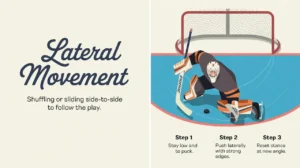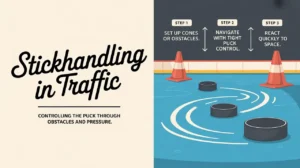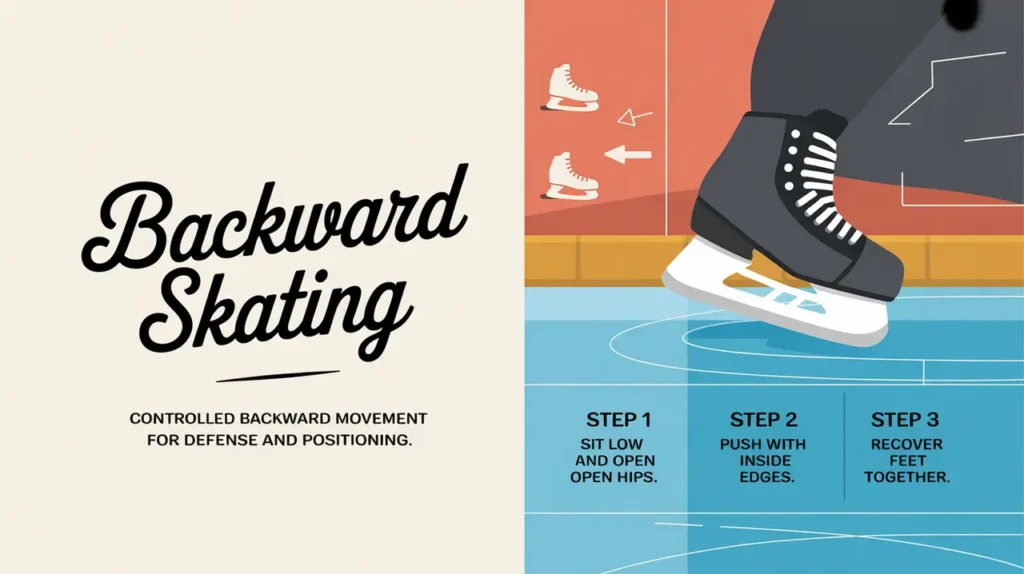Jim’s Intro to Edgework
Hi folks, Jim here, the only commentator who once tried to demonstrate “edgework” by bringing hair clippers to work and insisting on giving all players a shape-up.
What is edgework?
Edgework is the ability to control and shift between the inside and outside edges of the skate blades with precision, allowing players to maneuver smoothly in tight spaces, maintain balance, and build explosive power. It’s the backbone of high-level skating and underpins almost every other movement on the ice.
How does it work?
Edgework blends balance, strength, and blade awareness:
- Inside Edge: Used for pushing, cutting, and tight turns.
- Outside Edge: Provides stability, power on crossovers, and counterbalance during maneuvers.
- Transitions Between Edges: Skilled players roll seamlessly from one edge to another without losing control or speed.
- Body Alignment: Knees bent, hips low, chest up, and weight distributed over the arches of the skates.
- Knee and Ankle Flex: Controlled flexion allows micro-adjustments to stay balanced and agile.
- Edge Patterns: Drills often use figure-eights, S-cuts, and circles to build precise control.
How do you make good decisions with it?
- Adjust Instantly: Edgework lets players adapt their positioning in reaction to opponents.
- Find Efficient Routes: Smart edge use means tighter turns, better angles, and less wasted movement.
- Maintain Balance Under Pressure: Strong edges help players hold their ground in battles or at high speeds.
- Blend with Puck Control: Combining clean edgework with stickhandling creates unpredictable movement.
- Manage Speed and Space: The right edge at the right time keeps players in the play instead of chasing it.
How do you master it?
Mastering edgework takes technical focus and repetition. Players drill edge patterns without pucks, focusing on posture, knee bend, and blade feel. As they progress, they add speed, transitions, and puck skills. Off-ice balance and strength training also sharpen on-ice edge control.
What does it look like when done right?
Elite edgework looks smooth, precise, and almost effortless. Players carve tight turns, shift direction instantly, and glide with control that seems to defy physics. It’s the quiet skill that separates good skaters from great ones.
Commentator’s Corner
Jim’s Take
You know a player has elite edgework when defenders look like they’re stuck in quicksand while that player dances around them.
Parent Tip
Edgework takes time. Encourage patience and focused practice rather than chasing flashier skills too early.
Player Tip
Bend your knees, trust your blades, and focus on smooth transitions. Edge control is your secret weapon.
A Final Thought
Edgework is the artistry beneath the speed. Master it, and the entire rink opens up like a blank canvas.









